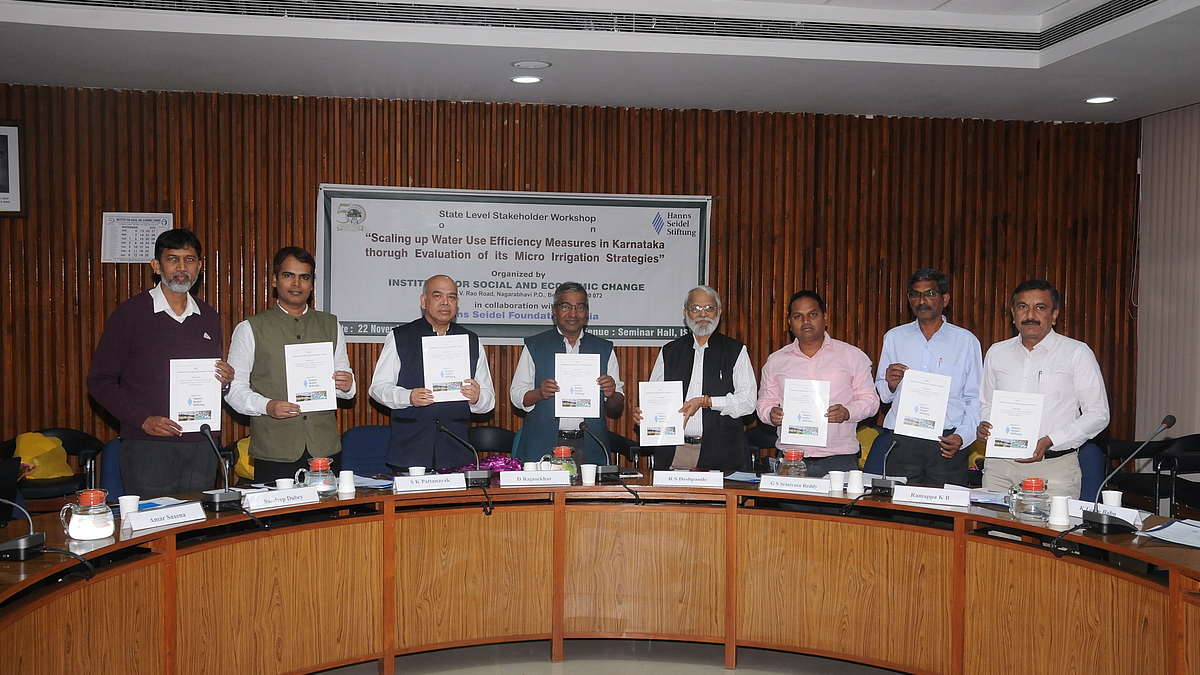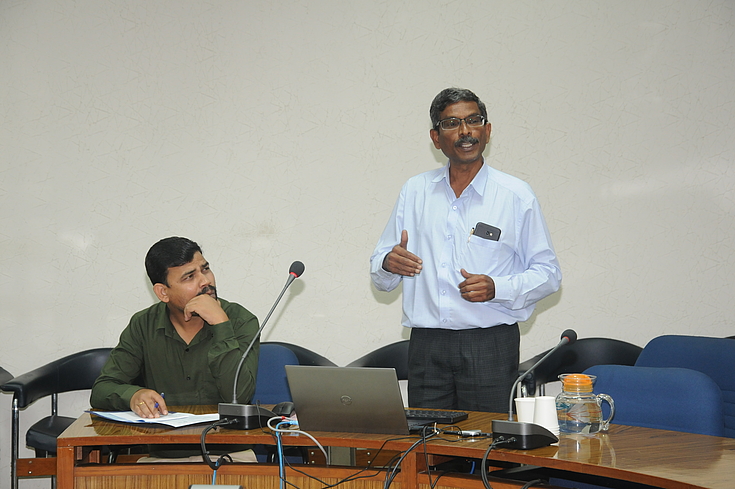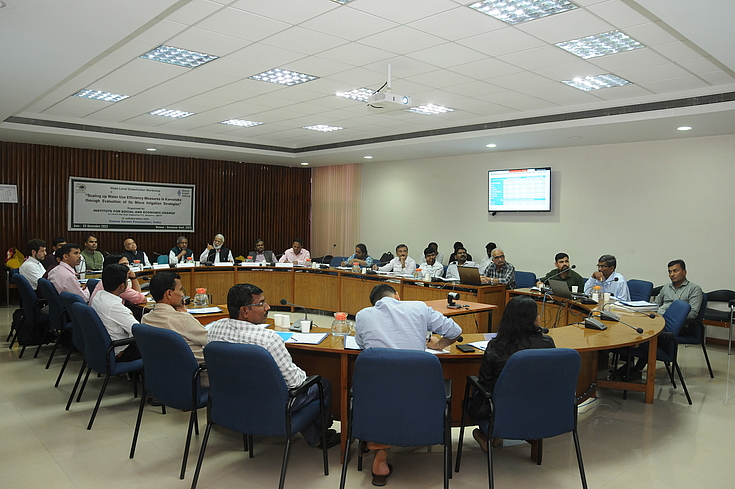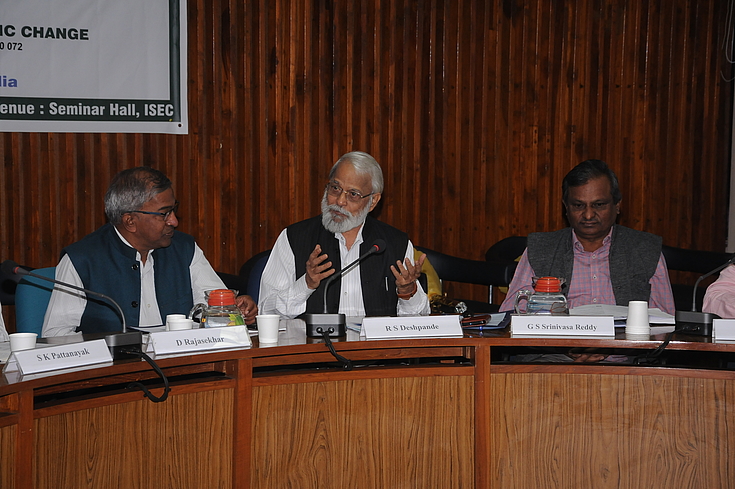HSS-ISEC Stakeholder Workshop
Drought-proofing through Micro Irrigation

Unveiling of the policy brief on “Scaling Up Water Use Efficiency Measures in Karnataka Through Evaluation of its Micro Irrigation Strategies”
Hanns Seidel Foundation (HSF) India, in collaboration with the Institute for Social and Economic Change (ISEC) Bangalore, organised a state-level stakeholder workshop on ‘Scaling Up Water-Use Efficiency Measures in Karnataka through Evaluation of its Micro Irrigation Strategies’ at ISEC Seminar Hall on 22 November 2022.
The occurrence of droughts is common in Karnataka, and climate change exacerbates the situation further. Erratic rainfall and rise in temperature due to climate change worsen the agricultural drought, impacting food security, farmer’s income, and the local economy. Judicious and efficient use of the state’s limited water resources in agriculture can help Karnataka cope with droughts. Micro Irrigation (MI) can enhance water-use efficiency, making agriculture sustainable. However, its uptake in Karnataka remains quite low.

Dr. Lenin Babu from ISEC presenting the key findings of the HSS-ISEC Study

Participants listening to the eminent speakers
With support of HSF, ISEC conducted a study on the implementation of Karnataka’s micro-irrigation strategies in the Yadgir district, which is one of the most drought-prone districts of Karnataka. The study documents barriers to the uptake of MI, makes suggestions on community-level innovations that can be scaled up, and proposes policy changes that make water management more inclusive and sustainable. ISEC shared the study findings before the key stakeholders such as decision-makers, government officials, academicians, doctoral students, agriculturalists, and farmers present in the workshop, for their critical review, suggestions, and consideration.

Professor R. S. Deshpande sharing his thoughts on food insecurity
The following salient points were discussed during the workshop:
- Achieving water-use efficiency in agriculture is crucial, and there is a need to adopt practices that allow the harvesting of more crop per drop of water. This will not only reduce the negative effects of droughts, but also enhance food security.
- ISEC suggests that drought-prone districts like Yadgir need more financial support. The state government should allocate increased budget for the higher adoption of MI in the drought-prone districts.
- It is important to give farmers incentives to adopt MI. Incentives can be provided to the farmers in the form of subsidies or water credits.
- Increased technical support and capacity building for farmers are a must for higher adoption of MI in Karnataka. Best practices and technological innovations from around the world, especially from countries like Israel which pioneer modern water technologies and innovation, can help Karnataka achieve water-use efficiency in agriculture. While the occurrence of droughts cannot be avoided, policy can impact the extent to which it turns into a disaster.
- A combination of policy and institutional reforms can help enhance farmer’s income by reducing input cost, improve management practices and facilitate better output management in agriculture.
